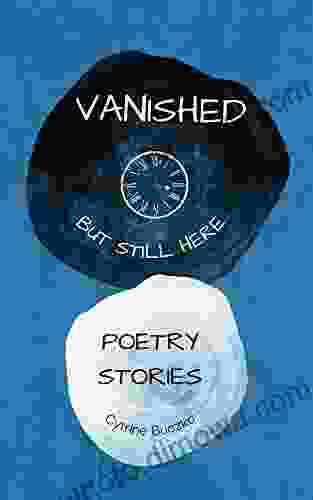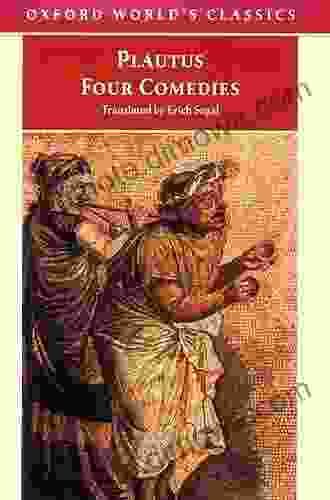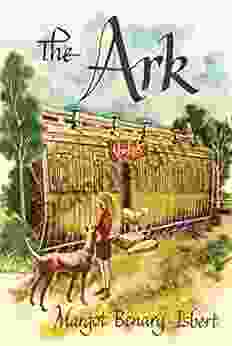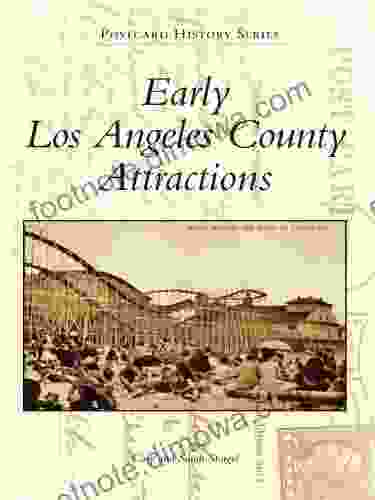Unveiling the Hidden World of Roman Slave Theater: A Journey into Art, Performance, and Humanity

5 out of 5
| Language | : | English |
| File size | : | 2895 KB |
| Text-to-Speech | : | Enabled |
| Screen Reader | : | Supported |
| Enhanced typesetting | : | Enabled |
| Print length | : | 572 pages |
In the heart of the Roman Republic, amidst the grandeur and opulence of the Empire, there existed a hidden world of artistic expression and defiance: slave theater. Enslaved performers took to the stage, defying their oppressive status and showcasing their extraordinary talents. Their performances, while often overshadowed by the more famous gladiatorial contests, played a pivotal role in shaping Roman society and culture.
The Origins of Slave Theater
Slave theater emerged during the 3rd century BCE, as wealthy Romans sought entertainment beyond the bloody spectacles of the arena. They turned to comedies and tragedies, which were often performed by enslaved Greeks who brought their theatrical traditions to Rome. As the demand for entertainment grew, so too did the number of enslaved performers, who became a vital part of the Roman cultural landscape.
The Performers and Their Lives
The majority of slave performers came from Greece, where they had been captured in wars or sold into slavery. They were often highly skilled actors, dancers, and musicians who had received training in the prestigious theatrical schools of Athens and other Greek cities. However, despite their talents, they were considered property and could be bought, sold, or even freed at the whim of their owners.
Their lives were often harsh, filled with long hours of rehearsals and demanding performances. They faced the constant threat of physical punishment or even death if they failed to meet the expectations of their masters. Yet, amidst their oppression, they found solace and empowerment in their art.
The Theater and Its Performances
Roman slave theater was primarily a form of entertainment, providing a much-needed escape from the realities of everyday life. The performances were held in amphitheaters or temporary stages erected in public spaces. The plays ranged from light-hearted comedies to poignant tragedies, offering audiences a glimpse into the human condition.
The most famous playwrights of Roman slave theater were Terence and Plautus. Terence, a freed slave himself, wrote comedies that satirized Roman society and exposed the follies of the upper classes. Plautus, on the other hand, was known for his farces and slapstick humor, which delighted audiences with their clever plots and witty dialogue.
The Social Impact of Slave Theater
Beyond its entertainment value, slave theater had a profound impact on Roman society. It provided a platform for enslaved performers to express themselves and challenge the rigid social hierarchies of the time. Through the characters they portrayed, they could voice their frustrations, mock their oppressors, and offer a glimpse into the lives of those often silenced and marginalized.
The popularity of slave theater also led to a greater appreciation of Greek culture and the arts. Roman audiences developed a taste for Greek literature, philosophy, and theater, which helped foster a more cosmopolitan and sophisticated society.
The Legacy of Slave Theater
The legacy of Roman slave theater extends far beyond the ancient world. The themes it explored – oppression, resistance, creativity, and the human spirit – continue to resonate with audiences today. Its impact can be seen in the works of later playwrights, from Shakespeare to contemporary dramatists.
Moreover, the story of slave theater is a reminder of the power of art to transcend boundaries and create a space for expression, even in the most oppressive of circumstances. It is a testament to the indomitable spirit of the human soul and the enduring legacy of creativity.
The world of Roman slave theater was a complex and fascinating one. It showcased the extraordinary talents of enslaved performers who defied their oppressive status through art. Their performances entertained the masses, challenged social norms, and left a lasting impact on Roman society and beyond. As we delve into the hidden world of slave theater, we gain a deeper understanding of the human condition and the power of art to transform and inspire.
5 out of 5
| Language | : | English |
| File size | : | 2895 KB |
| Text-to-Speech | : | Enabled |
| Screen Reader | : | Supported |
| Enhanced typesetting | : | Enabled |
| Print length | : | 572 pages |
Do you want to contribute by writing guest posts on this blog?
Please contact us and send us a resume of previous articles that you have written.
 Book
Book Novel
Novel Page
Page Chapter
Chapter Text
Text Story
Story Genre
Genre Reader
Reader Library
Library Paperback
Paperback E-book
E-book Magazine
Magazine Newspaper
Newspaper Paragraph
Paragraph Sentence
Sentence Bookmark
Bookmark Shelf
Shelf Glossary
Glossary Bibliography
Bibliography Foreword
Foreword Preface
Preface Synopsis
Synopsis Annotation
Annotation Footnote
Footnote Manuscript
Manuscript Scroll
Scroll Codex
Codex Tome
Tome Bestseller
Bestseller Classics
Classics Library card
Library card Narrative
Narrative Biography
Biography Autobiography
Autobiography Memoir
Memoir Reference
Reference Encyclopedia
Encyclopedia David C Cassidy
David C Cassidy Ernest Ialongo
Ernest Ialongo Heryen Ing
Heryen Ing Collin Jewett
Collin Jewett Chuck Flood
Chuck Flood Ian Pont
Ian Pont Marco Rauch
Marco Rauch Claus Kiefer
Claus Kiefer Gordon Tharp
Gordon Tharp Ryan Mccabe
Ryan Mccabe Cynthia Quarta
Cynthia Quarta Constance Burris
Constance Burris Course Hero
Course Hero Heather Davis Fisch
Heather Davis Fisch Tasha Tudor
Tasha Tudor Chuck Sambuchino
Chuck Sambuchino Esther Bandy
Esther Bandy J J Phillips
J J Phillips Cynthia Marienthal
Cynthia Marienthal Colleen Hanahan
Colleen Hanahan
Light bulbAdvertise smarter! Our strategic ad space ensures maximum exposure. Reserve your spot today!
 Thomas HardyFollow ·3.4k
Thomas HardyFollow ·3.4k Diego BlairFollow ·8.8k
Diego BlairFollow ·8.8k Billy FosterFollow ·16.9k
Billy FosterFollow ·16.9k Marc FosterFollow ·14k
Marc FosterFollow ·14k Jamal BlairFollow ·2.8k
Jamal BlairFollow ·2.8k Jean BlairFollow ·11.6k
Jean BlairFollow ·11.6k Casey BellFollow ·3.4k
Casey BellFollow ·3.4k Cameron ReedFollow ·5.9k
Cameron ReedFollow ·5.9k

 Howard Blair
Howard BlairThe Bewitching of Camille: A Mystical Tapestry of...
Prepare to be...

 Kirk Hayes
Kirk HayesUnraveling the Enigmatic Tale of "Vanished But Still...
In the labyrinth of memory...

 Joe Simmons
Joe SimmonsDogwild: An Unforgettable Literary Odyssey into the Heart...
Delve into the Untamed...

 Edgar Allan Poe
Edgar Allan PoeIndulge in Culinary Delights: Your Ultimate Costa Brava...
Discover the Flavors of Spain's Coastal...
5 out of 5
| Language | : | English |
| File size | : | 2895 KB |
| Text-to-Speech | : | Enabled |
| Screen Reader | : | Supported |
| Enhanced typesetting | : | Enabled |
| Print length | : | 572 pages |
















